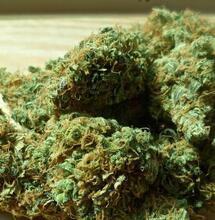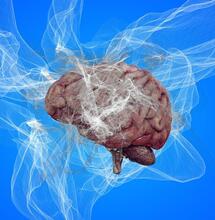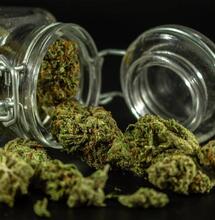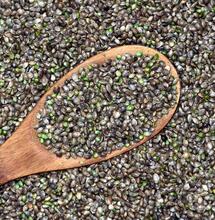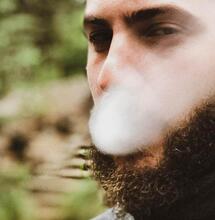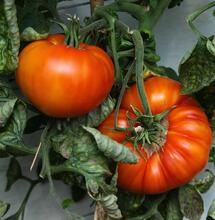He Lost a Leg in Malta: 'Reborn' Thanks to Cannabis
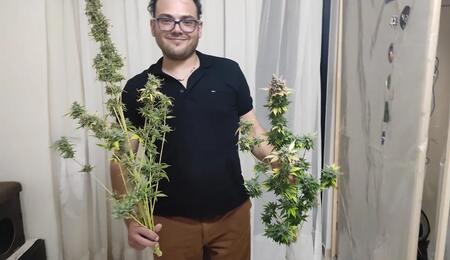
Luciano Muscarella had migrated to the island to be a chef, but a gruesome accident turned his life upside down. He says: "I have a missing limb syndrome, I feel chronic pain. Thanks to medical marijuana, I have eliminated all other drugs."
He lost his leg in a car accident and treated himself with cannabis. He says on the island, "Finally, I can also grow it." Luciano Muscarella is a young Palermo man who emigrated to Malta and is just around these days drying his first crop of therapeutic cannabis needed to treat his phantom limb syndrome. Since the beginning of the year, the cultivation of up to four plants has been legalized on the Mediterranean island nation.
"For many people it may seem absurd, but when you suffer the amputation of a limb, it can happen that you feel strong and constant pains precisely at the missing limb," Muscarella explains. "In my case, for 25 years, my brain sent nerve impulses to my leg, my ankle, my toes. Today that I no longer have my leg I experience uncontrollable spasms and very sharp pains that only with cannabis I have finally managed to control."
Luciano's arrival on the island is a path familiar to many young Italians who, driven by necessity and the search for a better job, decide to go abroad to try their luck.
"I studied cooking, before the accident I was a chef," Muscarella says. "After some very disappointing experiences in my home country, low salaries in particular well below my expectations, I decided on June 28, 10 years ago, to move to Malta where I knew there were excellent working conditions."
At only 22 years old and in a very short time, Luciano could fulfill his dream and make a career in the restaurant industry. "I felt like I had landed on another planet," he continues. "Fair wages, immediate hiring, career opportunities, in other words, everything I didn't get in Italy. In no time I was working in five-star hotels and other top establishments."

But then, one day, the accident changed his life. "I was a victim in a bad scooter accident that led to amputating one of my limbs, my left leg," says Muscarella. "It was July 15, 2015. Life collapsed on me, not only had the accident ended my dreams but I also found myself with a missing limb that had to be treated with a lot of medicine."
His treatment plan included paracetamol, to which Muscarella is allergic, antibiotics, codeine for pain, and sleeping pills to get some rest at night. Luciano's despondency lasted until he discovered the beneficial effects of cannabis.
He says: "One day I had cannabis brought to the hospital. I came down in a wheelchair and smoked after about a month and a half of abstinence. I remember very well the very first effect. After a month of catheter use, I could finally urinate without assistance. All the muscles were relaxed, I no longer had a contracted abdomen or pain. My gloomy and sad mood improved, in fact I burst out in thunderous laughter despite the fact that it was the darkest period of my life. I found myself exclaiming, 'But how can they say it's a drug!'?"
In no time, Luciano stopped taking other medications. In Malta, buying medical cannabis in pharmacies with a prescription is possible. "I luckily came across Dr. Andrew Agius from the Pain Clinic," he continues. "Muscarella explained to me how I could use Cannabis, how to take it, and now I have a prescription of about 1.5 grams a day, which I use to fight chronic pain."
Recently, however, Malta also passed a law that legalized free cultivation, allowing Luciano to experiment with self-production. "When I heard the news I couldn't believe it," he explains triumphantly. "I spend about 450 euros [US $470] a month on Cannabis and now I can independently produce my own medicine, because that's what we're talking about, a medicine bomb. Just these days I harvested my first plant. It is not acceptable for countries to hinder the use of cannabis, we need more research, more fields of application so that what I have experienced can also help other patients. I have eliminated four or five drugs and all my therapy is summed up in the medical use of cannabis, a plant I grow in my apartment."
He adds: "It is a miraculous plant that has allowed me to continue to live, in fact today, after my career as a cook was interrupted, I run a corner shop together with my partner and, thanks also to the prosthesis that was provided to me by the National Health Service, I again have ample prospects for the future."
Interview by Marco Ribechi



